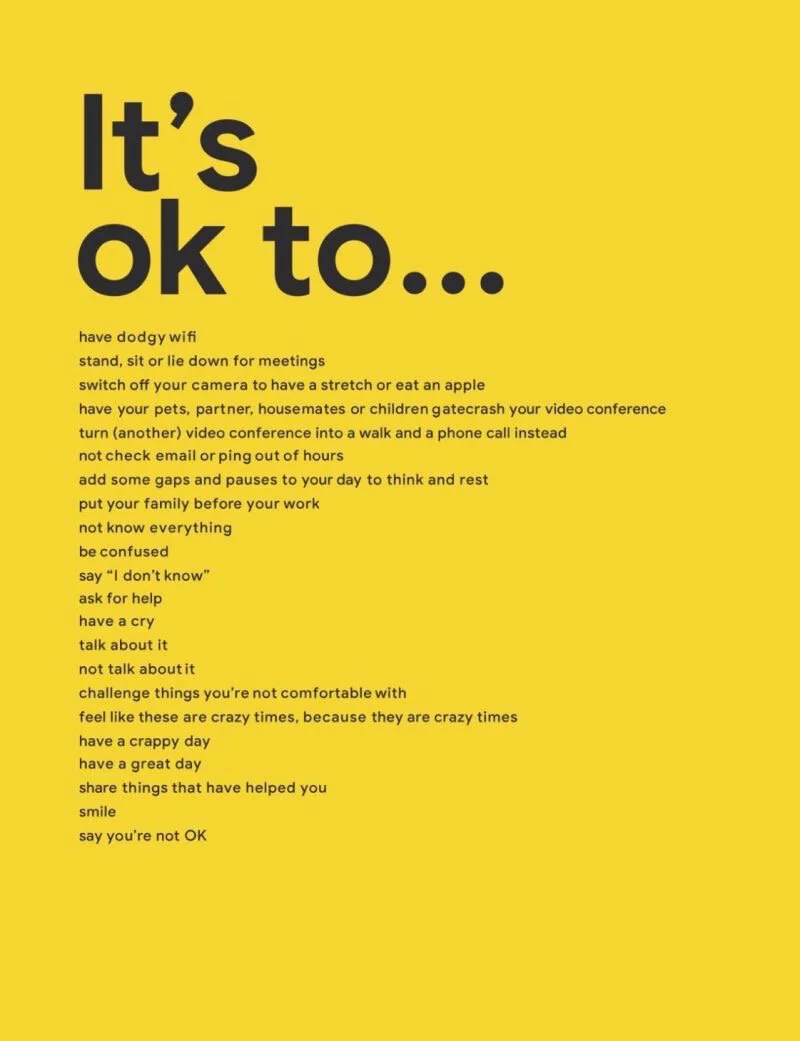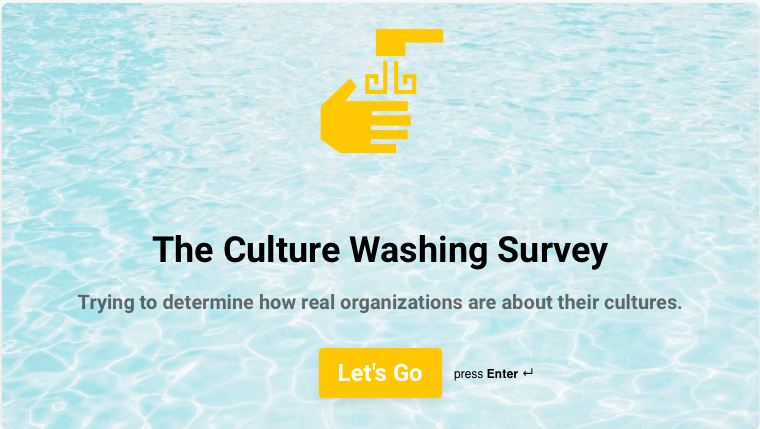If you’re an Executive or business leader, consider these numbers for a moment.
41
The percentage of people considering leaving their current employer according to Microsoft
31 and 45
According to Korn Ferry, the percent of employees who say they would quit their job without another one lined up, and those that say they are more likely now than pre-pandemic to leave a role without another job secured.
68,811 and 1,021
The LinkedIn emojis and commentary when this Google poster was shared by Chris Donnelly.
To say the response was as effusive as the Beatles arriving at JFK, or Timothee Chalamet going out in tight jeans, would be an understatement.
I was one of the folks caught up in the adulation and, the subsequent revelation that this poster was a flagrant knock-off from 2016, did nothing to dampen the euphoria.
Hold up though.
Wasn’t this the same enlightened organization that…
Fired their ethical AI leader for public comments about some of Google’s product development in this fast evolving, and lucrative, arena?
Paid over $130 million in severance to two former executives accused of repeated sexual harassment abuses?
Has a history of union busting and spying on union organizers dating back to before 2020?
An interesting set of behaviours for an organization whose celebrated “Don’t Be Evil”* ethos has often been held up as the moral code of the organization.
So, Is This Culture Washing?
That sad phenomenon we’ve seen all too often.
A piece of communications used as a metaphoric brush to paint over all manner of unsightly corporate behaviours.
Greenwashing – “It’s too expensive to remove lead from our products but here’s our CEO planting a tree at Headquarters.”
Purposewashing – “we’re deeply committed to gender/race/orientation equality, so we’ve fast-tracked several long overdue promotions just ahead of the AGM and release of our Annual Report photo collage.”
I readily admit it’s easy to beat up on Google. I merely opened their own product and, with trademark speed and efficiency, those examples showed up.
But even a cursory search reveals similar sad stories about other organizations that belie the PR and media adulation. Facebook’s cult-like culture where dissent is forbidden. Apple’s culture of secrecy and discrimination. Even culture darling Netflix is not above swift and public backlash for the way they act at times.
But What’s The Harm?
The harm – in real hard business impact terms – is significant.
Stop and scroll back to the start of this post and read those numbers again. Slowly.
Between 16% and 216% of the salary of the departing employee according to the Center for American Progress.
One to two years in lost productivity while the new employee attains the competency of the former one.
And then there’s the ripple effect across your broader culture.
The inevitable rise in cynicism and skepticism when current employees look at that these materials and it doesn’t reflect their lived experience inside the company. And for those who have been crushed by the past 20 months of COVID, a daily tsunami of Zoom Calls and the remote working rollercoaster, I’d say that cynicism would be legitimate.
That’s Just Hyperbole Hilton.
Maybe. It’s possible that the research numbers are exaggerated and that the cynicism and skepticism of your current employees are just a cost of doing business in these turbulent times.
But are you willing to bet the speed of your business recovery on it?
Will your innovation pipeline withstand the departure or mental detachment of your R&D team?
Will your customers continue to choose you if they detect a sharp decline in customer service and responsiveness?
Will your business partners and Sand Hill Road investors be quite as bullish about your organization if your Leadership Team rotates more quickly than a Disneyland turnstile?
These very real scenarios are all direct outcomes of the culture you’ve created. And no sexy poster or LinkedIn lovefest can save you from that.
The grandfather of organizational culture thinking, Edgar Schein, has often quipped that there’s no such thing as a good or a bad culture. Your culture just is. The more important question is whether your culture – those wonderful humans toiling inside your organization – will allow you to execute your business strategy effectively and efficiently.
That’s not merely a question of “good” or “bad” culture, that’s more a “life or death” question for your organization.
If you believe the answer is to engage in more Culture Washing versus genuine Culture Building, then, I’d humbly suggest, be prepared for your competition to brush you aside.
You Tell Me.
Edgar Schein also astutely remarked that those observing a culture should be aware that they’re not actually participatingin the culture and, therefore, could jump to all sorts of erroneous conclusions about how effective and efficient the culture is.
I fear I may be doing exactly that.
Please take this very short Culture Washing Survey.
Less than 3 minutes of your time but tell me how much of an issue it is for you. Tell me the impact the authenticity of an organization has on whether you join them or stay with them. And tell me which organizations are Culture Warriors you adore…or Culture Washers you pity and despise.
I can’t wait to share the results with you.
Sources:
1. Microsoft 2021 Work Trend Index
2. Korn Ferry “I’m Outta Here” Report
3. Chris Donnelly LinkedIn post
4. Google’s “Don’t Be Evil” mantra is still erroneously quoted as part of the organization’s values. That reference was removed in 2018.
5. CAP Salary Impact Study
6. Edgar Schein “The Corporate Culture Survival Guide. Third Edition”


